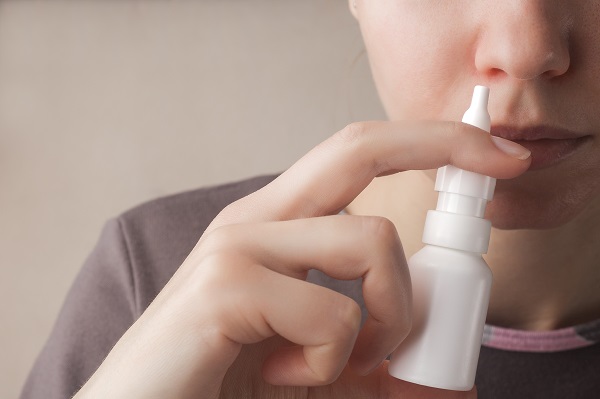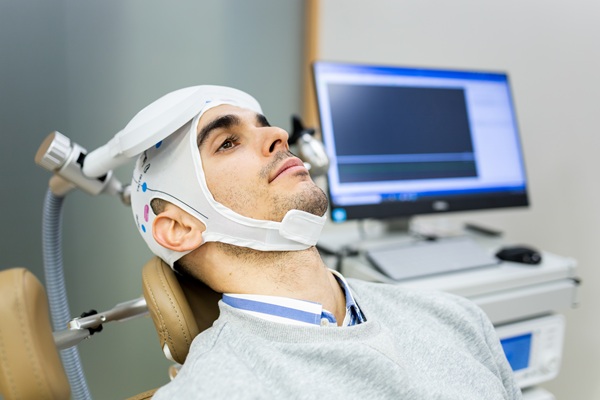How Is Nasal Esketamine Used to Treat Depression?

Many health care providers recommend Nasal Esketamine spray for the management of treatment-resistant depression (TRD). This depression is resistant to other treatments. You might have TRD if you have been treated for depression but your symptoms have not improved. But you should not lose hope. There are many other approaches that your health care provider may suggest that can be beneficial.
Nasal Esketamine for depression
Many people feel sad or hopeless from time to time. This is not unusual and it is a natural part of life. But for people suffering from depression, these feelings can become not only intense but also long-lasting. This can affect a person’s qualify of life. It can lead to problems at home, work and school.
Depression is often treated with a combination of antidepressant medication and some form of therapy. For some, antidepressants provide adequate relief on their own. While antidepressants help many people, they do not improve symptoms for some people with depression. Some patients only notice a partial improvement in depression symptoms.
How Nasal Esketamine is used
Esketamine is a nasal spray that is used with an oral antidepressant to treat depression. A person has to take a dose of the medicine under the supervision of a health care provider in a medical facility. Esketamine works by changing the activity of particular natural substances in a person’s brain. It comes as a solution or liquid to spray into the nose.
Every nasal spray device provides two sprays, one for each nostril. A health care provider will determine how many devices a patient should use depending on the dose. Esketamine usually causes nausea and vomiting. A person should not eat for at least two hours before using it. Not drinking liquid at least 30 minutes before using the medicine is also recommended.
Other ways to manage depression
There are other things people can do to manage depression while using esketamine nasal spray. Sometimes, some form of therapy may be included in a patient’s treatment plan. Lifestyle changes can also help people with depression. Exercise, better sleep and dietary changes can improve depression symptoms.
Who should avoid taking it?
A person who is allergic to esketamine or ketamine should not use this medicine. It is not recommended for a person with a blood vessel disorder that affects the brain, heart, stomach, chest or arms and legs. It is also not suitable for a person with a history of aneurysm or bleeding in the brain. The same goes for a person who has an abnormal connection between the arteries and veins. This condition is called an arteriovenous malformation.
Takeaway
Nasal Esketamine can be prescribed to people with depression who have tried and received no benefit from two or more antidepressant treatments. More people are using it because of its benefits. But this medicine is not recommended for everyone. People with certain conditions are not supposed to use it. A person should ask a health care provider if it is a good option. If you have any questions about this medicine, get in touch with your psychiatrist.
Get more information here: https://futurepsychsolutions.com or call Future Psych Solutions at (803) 335-5232
Check out what others are saying about our services on Yelp: Read our Yelp reviews.
Related Posts
Depression can be difficult to manage, particularly for those who do not respond to traditional antidepressants and other methods. In these cases, spravato for depression offers a new and effective psychiatric treatment option. This FDA-approved medication, also known as esketamine, is administered as a nasal spray under medical supervision. It has shown remarkable results for…
Treatment-resistant depression can leave patients feeling stuck, even after exploring different medications and approaches to therapy. The good news is that TMS therapy, or transcranial magnetic stimulation, offers a new way forward. This innovative and noninvasive psychiatric treatment aims to restore healthy communication between brain regions responsible for mood, emotion, and focus, providing a path…
Ketamine therapy is an effective treatment method for treatment-resistant mental conditions, such as depression, anxiety disorders, and post-traumatic stress disorder (PTSD). However, common misconceptions may prevent individuals from choosing this treatment and obtaining the relief they need. Our team is here to dispel the three most common myths surrounding ketamine therapy so you can make an…
Adult psychiatry can help bring relief to those struggling with their mental health. Psychiatrists complete specialized training in treating various mental disorders, from clinical depression to anxiety, and more. Whether you or a loved one has been diagnosed with a mental disorder or does not know what the issue is, psychiatric treatment may help. Below…


